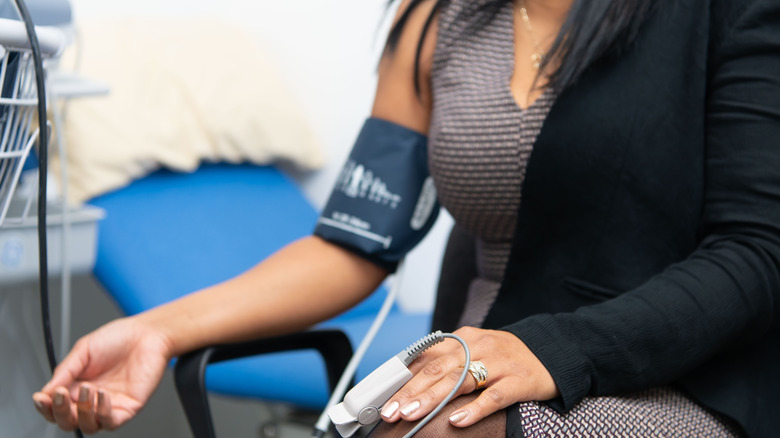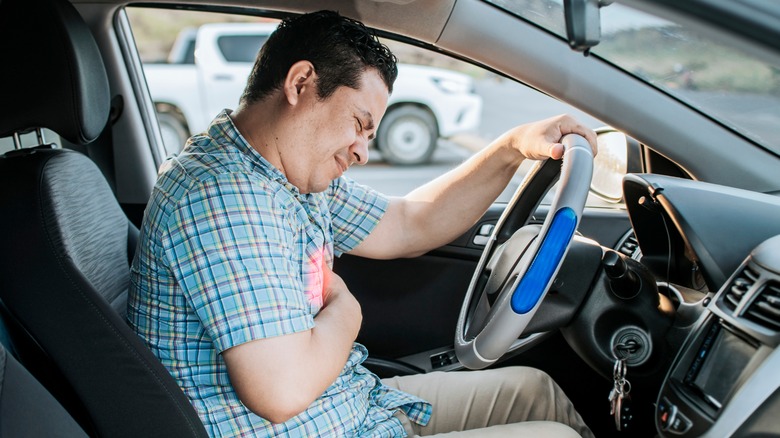When Should You Go To The Hospital For High Blood Pressure?
High blood pressure is a major risk factor for heart disease and stroke, but its symptoms are not always obvious. Contrary to popular belief, not everyone will experience sweating, facial flushing, nosebleeds, or headaches because of this condition, says the American Heart Association (AHA). In fact, about one-third of U.S. sufferers are unaware of their problem, according to the Centers for Disease Prevention and Control (CDC). For this reason, hypertension is often referred to as a "silent killer."
This sneaky condition affects people of all ages, including 25% of adults between 20 and 44 years old, reports the CDC. Certain lifestyle factors, such as cigarette smoking, heavy alcohol use, and high-sodium diets may increase the risk of hypertension, notes the Cleveland Clinic. Genetics, aging, and body weight may play a role, too. For example, overweight individuals and those over 55 are more likely to experience this problem.
Untreated high blood pressure can lead to kidney disease, heart attacks, peripheral artery disease, and vision problems. In some cases, it may reduce blood flow to the brain and cause vascular dementia, explains the Cleveland Clinic. But even if you're aware of your condition, you might not know when to ask for help. As mentioned earlier, this disorder is largely asymptomatic—even in the late stages. However, there are some telltale signs that should urge you to call 911.
Seek emergency care for hypertension if you have these symptoms
Normal blood pressure readings are below 120/80 millimeters of mercury (mm Hg), according to the AHA. The first number indicates your systolic blood pressure, whereas the second number measures your diastolic blood pressure. As these numbers rise, so does your risk of complications. A blood pressure reading higher than 180/120 mm Hg requires emergency intervention. This condition is known as a hypertensive crisis and can be fatal.
The AHA recommends getting a second reading if your blood pressure is above 180/120 mm Hg. Meanwhile, watch out for other symptoms, such as chest or back pain, difficulty breathing, blurred vision, and numbness or weakness. Some people may also experience severe headaches, anxiety, nausea, confusion, or seizures during a hypertensive crisis, notes the Mayo Clinic.
If you don't have any of these symptoms, call your doctor and do what they say. However, it's important to call 911 if you experience pain in the chest or stroke-like symptoms, such as difficulty speaking, sudden numbness, or a tingling sensation on either side of the body, explains K Health. You might also have nosebleeds, heart palpitations, dizziness, or a feeling of malaise. Again, the best thing you can do in such cases is call 911. High blood pressure alone doesn't always require emergency treatment, but you should still see a doctor sooner rather than later.


